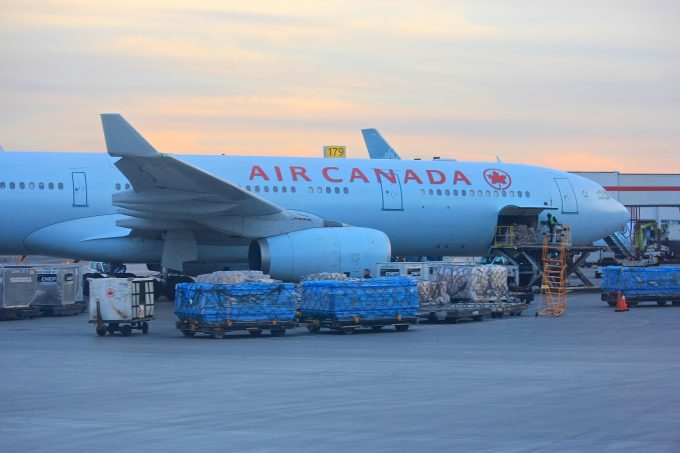Container spot rates have peaked as all major trades see prices fall
There was more evidence in this week’s container port freight markets that peak prices on ...
TFII: SOLID AS USUALMAERSK: WEAKENINGF: FALLING OFF A CLIFFAAPL: 'BOTTLENECK IN MAINLAND CHINA'AAPL: CHINA TRENDSDHL: GROWTH CAPEXR: ANOTHER SOLID DELIVERYMFT: HERE COMES THE FALLDSV: LOOK AT SCHENKER PERFORMANCEUPS: A WAVE OF DOWNGRADES DSV: BARGAIN BINKNX: EARNINGS OUTODFL: RISING AND FALLING AND THEN RISING
TFII: SOLID AS USUALMAERSK: WEAKENINGF: FALLING OFF A CLIFFAAPL: 'BOTTLENECK IN MAINLAND CHINA'AAPL: CHINA TRENDSDHL: GROWTH CAPEXR: ANOTHER SOLID DELIVERYMFT: HERE COMES THE FALLDSV: LOOK AT SCHENKER PERFORMANCEUPS: A WAVE OF DOWNGRADES DSV: BARGAIN BINKNX: EARNINGS OUTODFL: RISING AND FALLING AND THEN RISING

Canada is upping its freighter capacity, with both Cargojet and Air Canada expanding to take advantage of new opportunities.
Cargojet announced this week it had raised C$350m (US$275.2m) to help it acquire five 767 and two 777 freighters for delivery from this year into 2023.
It will also invest in a new hangar and additional land-based infrastructure and pay off debt, it said.
“The infrastructure investments will support additional e-commerce volumes driven by the pandemic that are expected to establish a new higher baseline,” said the carrier.
While its announcement noted high domestic and e-commerce demand, it also noted growing demand for international services.
It said: “Air cargo capacity has been severely constrained due to the reduction of passenger aircraft operating on international routes, and it is uncertain when such capacity will return to pre-pandemic levels. Furthermore, US and international air cargo growth opportunities have emerged as a result of rapidly evolving global supply chains and a lack of air cargo capacity in key markets.
“The company intends to use a portion of the net proceeds of the offering to capitalise on potential strategic investments in the US, and the acquisition of two long-range B-777 freighter aircraft for international routes for delivery in 2023.”
Meanwhile Air Canada, which has long toyed with the possibility of having its own freighter fleet, has taken the plunge.
It has sold two 767-300ER passenger aircraft to ATSG subsidiary Cargo Aircraft Management for conversion at Israel Aerospace Industries and will then lease them back. The first aircraft will leave for conversion in March and re-deliver by the end of the year.
New vice president of cargo Jason Berry said: “We are excited to be in a position to capture the market opportunities that currently present themselves. Delivering on our commitments is critically important to all of us at Air Canada.”
Mike Berger, chief commercial officer of ATSG, said: “We are looking forward to delivering these airplanes and extending our special partnership with Air Canada. We continue to see growth outside of the United States, and ATSG continues to enable great companies to take advantage of growing global e-commerce and mobile commerce trends.”
Air Canada announced plans last year to permanently retire 79 older aircraft in its fleet, 767s, A319s and Emb190s, saying it would look at 767 conversion possibilities for “several” aircraft – suggesting there may be more to come.
The carrier also announced this week it was further adjusting its network in response to Covid-19, and that it was cutting its first-quarter capacity by another 25%, which would lead to a workforce reduction of some 1,700 staff.
Comment on this article